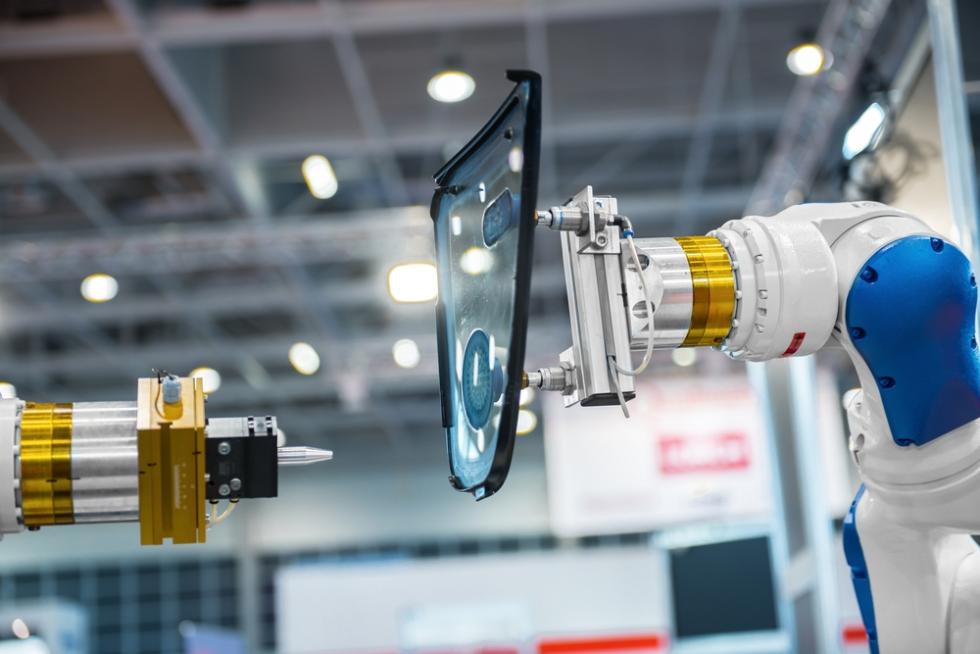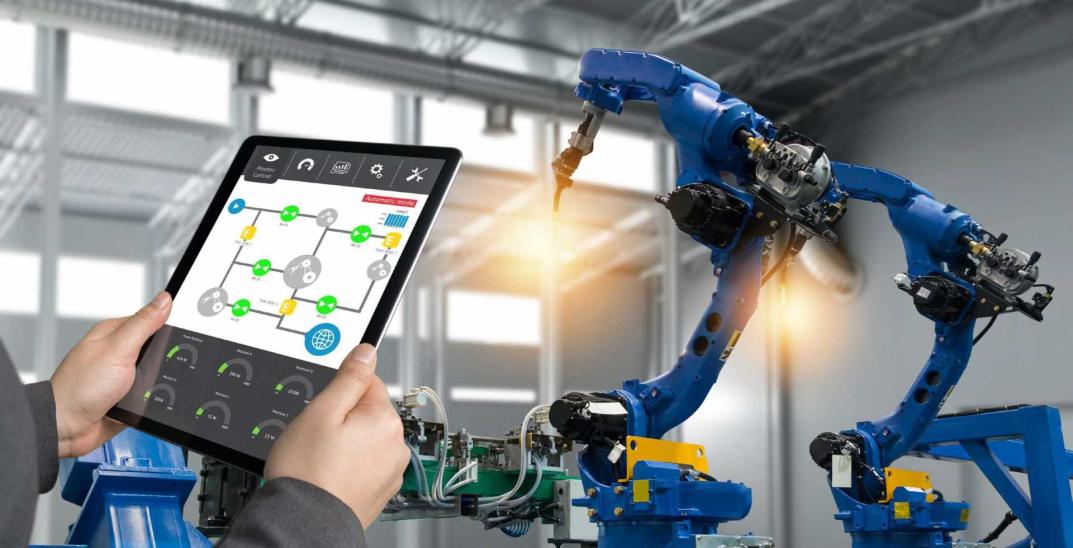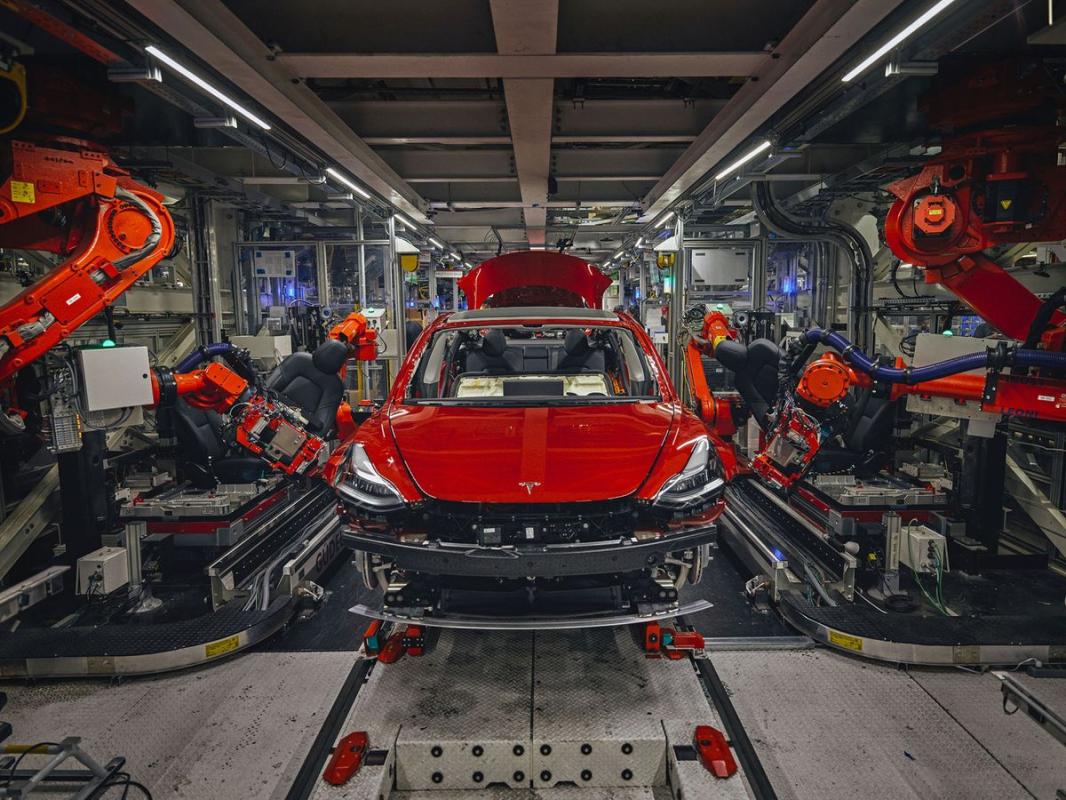How Can AI Foster Collaboration and Innovation in Manufacturing?
Artificial Intelligence (AI) has emerged as a transformative force in modern manufacturing, revolutionizing processes, enhancing efficiency, and driving innovation. This article delves into the ways AI can foster collaboration and innovation in manufacturing, exploring its potential to redefine the industry.

AI-Driven Collaboration In Manufacturing:
Real-time Data Sharing:
AI enables the seamless exchange of data across various manufacturing processes and systems, breaking down silos and facilitating real-time information sharing. This interconnectedness leads to improved coordination, reduced downtime, and increased productivity.
- AI-powered data integration platforms collect and analyze data from disparate sources, providing a comprehensive view of manufacturing operations.
- Real-time data sharing enables proactive decision-making, allowing manufacturers to respond swiftly to changes in demand, supply chain disruptions, and quality issues.
Collaborative Robotics:
AI plays a crucial role in facilitating collaboration between humans and robots in manufacturing settings. Collaborative robots, equipped with AI algorithms, can work alongside human workers, enhancing safety, increasing efficiency, and reducing labor costs.
- AI-powered robots can be programmed to perform repetitive and dangerous tasks, freeing human workers to focus on more strategic and creative endeavors.
- Collaborative robots are equipped with sensors and AI algorithms that enable them to adapt to changing conditions and work safely alongside human workers.
Virtual Teams And Remote Collaboration:
AI tools and platforms enable virtual teams and remote collaboration among engineers, designers, and manufacturers, breaking down geographical barriers and fostering innovation.
- AI-powered video conferencing and collaboration platforms facilitate real-time communication and idea sharing among team members located in different parts of the world.
- Remote collaboration enables access to a global talent pool, allowing manufacturers to tap into expertise and skills that may not be available locally.
AI-Powered Innovation In Manufacturing:
Predictive Analytics And Machine Learning:

AI algorithms can analyze vast amounts of manufacturing data to identify patterns, trends, and anomalies, enabling predictive analytics and proactive decision-making.
- AI-powered predictive analytics can identify potential quality issues, equipment failures, and supply chain disruptions before they occur, allowing manufacturers to take preventive measures.
- Machine learning algorithms can continuously learn and improve their predictive capabilities over time, leading to increased accuracy and reliability.
AI-Driven Design And Optimization:
AI can be used to optimize product designs, manufacturing processes, and supply chain management, leading to reduced costs, improved product quality, and increased efficiency.
- AI algorithms can analyze design data and identify areas for improvement, leading to optimized product designs that meet customer needs and manufacturing constraints.
- AI-powered optimization techniques can be applied to manufacturing processes to reduce waste, minimize downtime, and improve overall efficiency.
AI-Enabled Automation And Robotics:

AI can automate repetitive and dangerous tasks in manufacturing, enabling humans to focus on more strategic and creative endeavors.
- AI-powered robots can be programmed to perform tasks such as welding, assembly, and packaging, increasing productivity and reducing labor costs.
- AI-enabled automation can also be used to automate quality control processes, ensuring consistent product quality and reducing the risk of defects.
Challenges And Considerations:
While AI offers immense potential for collaboration and innovation in manufacturing, there are challenges and considerations that need to be addressed for successful implementation.
- Data security and privacy concerns need to be addressed to ensure the protection of sensitive manufacturing data.
- Ethical considerations surrounding the use of AI in manufacturing, such as the impact on employment and the potential for bias, need to be carefully examined.
- The need for skilled workers who can understand and work with AI systems is crucial for successful AI integration in manufacturing environments.
AI has the potential to revolutionize manufacturing by fostering collaboration, driving innovation, and improving efficiency. By addressing the challenges and considerations associated with AI implementation, manufacturers can harness the power of AI to transform their operations and gain a competitive edge in the global marketplace.
As AI continues to evolve, we can expect to see even more innovative applications of AI in manufacturing, leading to a future where collaboration, innovation, and productivity reach unprecedented heights.
YesNo

Leave a Reply